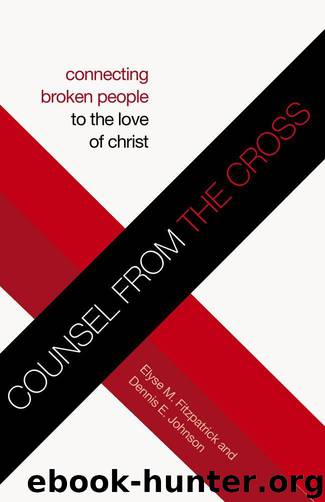Counsel from the Cross: Connecting Broken People to the Love of Christ by Elyse Fitzpatrick

Author:Elyse Fitzpatrick
Language: eng
Format: mobi
Tags: ebook, book
Publisher: Good News Publishers
Published: 2009-06-23T00:00:00+00:00
CHAPTER SEVEN
The Gospel and Our Emotions
Consider him who endured from sinners such hostility against himself, so that you may not grow weary or fainthearted.
Hebrews 12:3
PURITAN RICHARD BAXTER ONCE WROTE, “If God would not give me a heart to love him, I would I never had a heart.”1Obviously, Baxter was not hoping for a new physical heart, he was hoping that his appraisal of God would enliven his emotions to such an extent that his desires, thoughts, choices, words, and actions would reflect what he knew to be true about God. He believed that life without this Godward passion would not be worth living. He also believed that his feelings were to be used in service of his Lord.
In this chapter, we are going to take a look at what has become one of the most controversial areas of counseling, that of our emotions.2 Our emotions are a good gift from God for us. They enliven and color our daily lives and empower us to accomplish great good. Even uncomfortable emotions such as sorrow, anger, or fear can be of great value to us as we use the pain they cause to effect change in our lives.
ALL THAT MATTERS IS MATTER
Although counselors have always been concerned with emotions, disagreements about the source of our uncomfortable feelings have recently become more marked. Over the past few decades, Western science and medicine have been captivated by the theory that all emotions, both pleasant and painful, are caused by the levels of certain chemicals in the brain, most notably serotonin. The theory is that when serotonin levels are out of balance, uncomfortable feelings such as depression, anger, and anxiety result.
This belief is based on a very specific theory of human nature. The theory is this: there is nothing immaterial about human beings. All that matters is “matter,” the stuff we are made up of. There is nothing invisible or unverifiable about us. This theory is called materialistic determinism. Just as the name sounds, this theory states that what we are, every decision we make, and how we live our lives have been predetermined by the material part of us, most notably the levels of certain chemicals in our brains. These chemicals then determine the choices we make, how we feel, what we’ll become. There is no inner person to bother with; we are simply a complex bag of chemical reactions. The materialistic determinist doesn’t believe in what the Bible calls our heart, soul, mind, or will.
Belief in this theory has consequences, not the least of which is the removal of personal responsibility for the choices that we make.
After all, if who we are (and will be) is predetermined by our brain chemistry, then we aren’t responsible for our actions, whether good or bad.3
Another consequence of materialistic determinism is the belief that altering the levels of certain chemicals in the brain is the proper way to create emotional health. And so, whereas in the past, a person who was sad or anxious might have tried
Download
This site does not store any files on its server. We only index and link to content provided by other sites. Please contact the content providers to delete copyright contents if any and email us, we'll remove relevant links or contents immediately.
Victory over the Darkness by Neil T. Anderson(2855)
The Rape Of Nanking by Iris Chang(2809)
Chosen by God by R. C. Sproul(2159)
Habits of Grace by David Mathis(1974)
Crash the Chatterbox by Steven Furtick(1973)
Knowing God by J.I. Packer(1852)
How To Be Born Again by Billy Graham(1775)
A Prophet with Honor by William C. Martin(1717)
Gospel-Shaped Marriage by Chad van Dixhoorn(1714)
Peace with God by Billy Graham(1679)
Confronting Christianity by Rebecca McLaughlin(1584)
God's Smuggler by Brother Andrew(1541)
Angel Dreams by Virtue Doreen Virtue Melissa(1472)
Whisper by Mark Batterson(1452)
Missionaries by Norman Lewis(1427)
The School of Biblical Evangelism by Ray Comfort(1425)
The Truth War by John MacArthur(1422)
The Poems of Rowan Williams by Rowan Williams(1351)
Do Greater Things by Robby Dawkins(1324)
